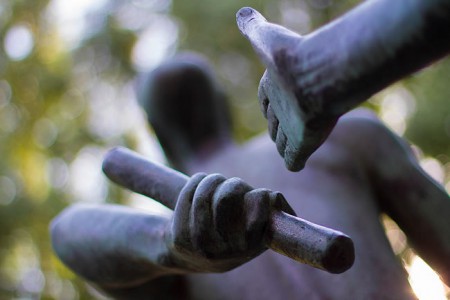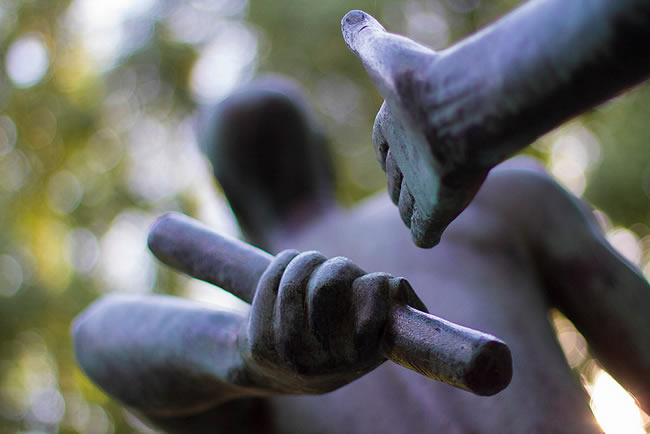Traditionalist caucus groups like to draw out the extremes of progressive expressions and claim, “this is what The UMC will look like.” But is that true? Will United Methodism suddenly become this bastion of progressivism at last, inclusive of all LGBTQ+ persons, progressive theological claims on God and Jesus, dogs & cats living together, mass hysteria?
No. They won’t. And math and polity are the reasons why.

“Representative” Democracy
In our polity, decisions about doctrine and practices of The United Methodist Church are made at the General Conference. The UMC is a representative democratic institution, meaning that ~800 delegates from the varied regions of United Methodism meet to vote on its doctrine and polity at General Conference (basically our Congress). The next one is in May 2024, delayed from May 2020 due to the COVID-19 pandemic.
In practice, the UMC is not really representative or democratic, and it games the system by counting dead people to boost representation, as voting delegates are awarded like the House of Representatives in the U.S. Congress: population determines the number of votes. For 2024, a populous conference like Oklahoma gets 14 votes split between clergy and laity, whereas a smaller conference like Pacific Northwest gets two votes.
Since at least the 1980s, progressives have been a minority in the church at the General Conference, whereas conservatives (and more recently, fervent Traditionalists) have the majority vote. Any change to be more inclusive in our doctrine and polity with regard to LGBTQ+ persons has not yet reached a majority opinion in the denomination.
But is that soon to change?
Scare Tactics by Traditionalists…
With the expected exodus of people, property, and finances to the Global Methodist Church starting on May 1st, progressives and traditionalists alike are claiming this will immediately lead to a progressive takeover of The United Methodist Church.
They are both wrong. Let’s see why.
Traditionalists like to use scare tactics that the UMC, after separation, will become this heretical, deep pit of despair. For example:
- A pastor in Central Texas claimed that when the GMC leaves, the “post-separation UMC will not believe that Jesus is the Christ; our Messiah, that Jesus is both fully human and fully divine, that Jesus died for our sins, or that Jesus rose from the dead.”
- A Florida Man, in his presentations to local churches encouraging them to leave, quotes Jude 3-4, implying the UMC has become “ungodly people, who pervert the grace of our God into a license for immorality and deny Jesus is our Lord and Savior.”
However, such claims fall short when you look at the United Methodist polity. Those foundational beliefs are baked into the sections covered by the Restrictive Rules, which state:
The Restrictive Rules are found in Section III of the Constitution, stating the General Conference may not “revoke, alter, or change” the Articles of Religion, the Confession of Faith, or the General Rules of the Societies.
The barrier to changing those is so high that finding a supermajority of progressives in The United Methodist Church willing to change those beliefs is prohibitive. Even in more progressive church denominations, such intrinsic beliefs have not changed. So this is just a scare tactic to get people to leave The UMC and bring their people, property, and finances to a separatist movement. Don’t believe it, and shame on Traditionalists for their craven lies.

…Wishful Thinking by Progressives
On the other side, posts from progressives such as “looking forward to a more just UMC in 2024” and “so glad when the Global Meths go away we can vote in full inclusion of gay and lesbians” are prevalent on social media. Here’s why that also is in error.
Remember above that General Conference is like the U.S. House of Representatives? In both, redistricting happens every so often that re-allocates how many delegates go to each region, based on population. For the U.S. House, this happens every 10 years. For The UMC, this happens every General Conference (so every 4 years, though the last re-allocation was in 2017 for the 2020 General Conference, postponed now to 2024).
So what happens to this redistricting after a large group of conservatives leaves The UMC? Does it change the calculus in favor of progressives? Let’s use simple numbers:
- Imagine there are 10 conservative-majority conferences. Each conference has 10,000 Methodists in them, and each year they together split 20 votes at GC. Based on the proportional math, each conference gets 2 votes, and conservatives always win by a small margin. So all 20 delegates are more conservative.
- But after the Traditionalist churches leave for the GMC, suddenly the progressives are in the winning margin in 5 of those conferences thanks to their exodus, but those conferences now only have 8000 members each. So they lose 20% of their overall representation. Suddenly, those five majority-progressive conferences share 8 progressive delegates, but the other conferences, which lost fewer churches, now wield 12 conservative votes. Instead of it being 20-0, it is now 12-8, still a conservative majority.
Those numbers are still not enough to get a majority vote on LGBTQ+ inclusion.
Why do I name this? One of the most devastating moments for progressives like me was at General Conference 2012 when we narrowly lost votes for inclusion or “agree to disagree”–a shock after some of our leaders claimed we had the votes. I don’t want to set up 2024 to be more of the same, so we need to be transparent about the numbers.
Detailed Addendum: It’s actually worse than the above. If a church has rejected the United Methodist connection, they likely haven’t been connectional enough to keep accurate membership records–instead, they are artificially inflated. We examined this in 2019, showing the data in membership has not reflected the reality. So when megachurches (or folks who didn’t care about the connectional quality of data) leave, they take with them a disproportionate number of member seats. That reduces the regional numbers overall at redistricting time, which further reduces the voting strength of those suddenly-more-progressive regions.

Inclusive Churches are built on Hope
Traditionalists have fake news, but thankfully, progressives have more than false hope. We have the same hope that has sustained us in our minority movement since the 1970s: the road is long, but it bends towards justice. The hope that sustained women seeking ecclesial suffrage and black Americans seeking to end segregation–that same hope sustains progressives seeking LGBTQ+ inclusion now.
Progressives are committed to that ongoing work–and we need to be clear our goals won’t come automatically. May 1st won’t be a done deal. The exodus of Traditionalists is not our finish line. We won’t get to a fully inclusive church by default. When Traditionalists leave, we need to do the work to figure out “who are we now” and “what do we need to do next” to be the Christ-centered, justice-seeking people God needs us to be.
We won’t stop working for it. We will get there. Progressives can keep organizing and making disciples and nurturing relationships of equity and mutuality. It’s in our nature to care for the connection, and unlike the GMC’s locked-down polity, there’s always an open door to effect change in The United Methodist Church.
Along with this work, the two paths to a unified and more just church are quite attainable:
- Thanks to the progressive/moderate wave elected in response to the anti-gay excesses in the 2019 General Conference, the most viable path to LGBTQ+ inclusion is the election of a bloc of moderate/progressive bishops who will pledge to not enforce the anti-LGBTQ+ sections of our polity. The shameful, unjust anti-gay laws will regrettably stay in the polity, but not in practice. That is attainable and just waiting for the election date, expected this November 2022.
- The most viable path to continued UMC unity is the passage of regionalism to right-size the UMC and place authority closer to the mission fields. This is supported by both progressive and conservative voices because it has nothing to do with LGBTQ+ inclusion. This will be legislation considered at the General Conference postponed to 2024.
For conservatives and traditionalists reading this article, if you know in your heart you will never, ever want to affirm LGBTQ+ full inclusion in your church, then get out while you can. Stop the harm and democratic abuses that the traditionalist Caucus Groups are manipulating you to do (so you keep sending them checks) and move your membership to the GMC that you seek.

Your Turn
Scare tactics by conservatives that the UMC will fall down a deep, dark liberal pit are as wrongheaded as progressives claiming the exit of The GMC will automatically create a progressive-majority UMC. Our polity and math simply don’t support either scenario.
But progressives have a solid path ahead of us if we do the work and don’t assume justice will come by default. Let us share, support, and organize to build the next Methodism full of justice, grace, and an enthusiasm to transform the world into disciples of Jesus Christ.
Thoughts?
Thanks for reading, commenting, subscribing, and sharing on social media.



How many UMC pastors who intend to join the GMC will take to their pulpits on May Day still holding UMC credentials? How many will have the courage of their convictions and relinquish those credentials sooner rather than later to join the GMC?
Do you think the UMC can escape the fate of the Episcopalians, Presbyterians, and the ELCA Lutherans?
I was in the ELCA when they voted to fully embrace LGBT. The official documents define four different views of that decision, all (on paper) equally allowed within the ELCA. Within a few years, the only one that remains is a full embrace of all of the progressive positions. All of the other three positions have de facto been driven out of the organization. You must fully embrace progressivism, or be silent.
How will the UMC avoid that?
RJ,
As ELCA clergy (I transferred to ELCA from UMC in 2021), I can tell you your statement is false. Maybe whatever Synod you were part of were has shifted to “all progressive all the time,” but that would hardly be the case where I serve in the Southeastern Synod (despite the fact we have a married gay man as bishop– and he’s been a mighty fine bishop for us through this pandemic!). It’s not true among the clergy, and it’s certainly not true in the congregations. What is true is the spirit of the 2009 agreement is in fact being lived out: we respect the bound consciences of one another. We really do.
Those who don’t want to do that (on any side) may leave. But we really are a far more diverse lot in ELCA than you give us credit for.
I do admire your continued drive for the progressive cause – but while we have worked for change – the pews have emptied.
For a while I blamed my Seattle church’s old ways and the local efforts, then I blamed the district level – for forcing each congregation to re-invent the wheel each time, then I found out – probably from your column – that the districts tried being more aggressive about directing what should happen to failing churches, and got such push back, they now sort of let things play out as long as a congregation pays its apportionments.
But, I’m just stunned having taken 2 hours on a rainy saturday afternoon recently – to get some actual numbers based on closed churches. I used PNWUMC clergy announcements from the last 10 years to get the names of new church plants and existing congregations. To map where they were going and where they were leaving from. Then I just looked up all those churches and found many dead and dying churches based on their websites/facebook/pastor’s linkedin – many still up long after they closed, and those not closed – based on congregational pictures pre-covid, within a few years of not having enough people to run things. I did not use anything during COVID time, everything was from before COVID. I have found the number of church closures in recent time shocking (pre-COVID). Quite frankly if I had realized how bad it was, it may have stopped my efforts to try turn the tide – though I did make some great friends and put on some fun events.
But with that knowledge about the bleakness of the situation, to address this article specifically:
When you mention that “Traditionalists like to use scare tactics that the UMC, after separation, ….. the UMC will not believe that Jesus is the Christ; our Messiah, that Jesus is both fully human and fully divine, that Jesus died for our sins, or that Jesus rose from the dead.” and then say that those doctrines are baked into our polity – that’s really a reach and suddenly you are referring to some institutional document that is not reflective of daily church life in the PNW UMC. All the younger groups have removed almost all the traditional/supernatural – most are secular in world-view or at least do not “do” the virgin birth/literal rise from dead/“died for our sins” core tenets of Christianity (which is fine) but then its unfair to ridicule the more traditional members for calling a spade a spade and pointing out all the major tenants of the Christian faith that are now negotiable in the Progressive UMC.
You mention that “Progressives can keep organizing and making disciples and nurturing relationships of equity and mutuality.” You tuck in “making disciples” – really? The PNW UMC has been dismal at making disciples. We are welcoming, but not so good at teaching or instructing.
We have long said numbers don’t matter, but attempts at any sort of new growth have failed. Heck, just finding enough to replace the 20 or so people it takes to run a church would be enough. Only one newer PNW church plant/now church seems to have reached a solid enough core group to continue past its founder’s leaving this June – to be further propped up by the funds from a dead congregation’s sold building. But elsewhere in the city, we have engaged new small numbers for a time, but those efforts fade and no lasting members are brought in to take over the institutional reins. Most recent church-planting efforts in WA State have failed in the last ten years, never reaching more than a 10-20 at the most, exist for a year or two, then fade away (recent example – pre-covid – the existing oldster UMC closures near Tacoma (4, well, 3 and a 4th in limbo without a pastor): and the failure of the 2 (sort of 3) church-planting community groups in that area. All failed before COVID.
The churches that will remain in the PNW UMC – will be living off the money from the sold carcasses of other previously failed UMC churches. Meaning the era of self-sustaining churches in the PNW UMC seems long gone. Is that what we are fighting for? The vigorous rebranding and reformating of services of the PNW UMC is well in process, lets check back in with The Bridge, First Tacoma, University Gathering, Valley & Mountain, in the next 5 years and see if they have a vibrant community or are just burning through resources to stay afloat. I wish everyone well, but the data doesn’t lie. It may be the best option was to let the oldsters have their church their way, then pick an end date and sell, and turn the resources into something that would be fully used, like housing, etc.
Oh, and in all this, LGBT people should just continue to overlook the denomination’s policies that will now not be able to be changed as was said would be a few years ago? I’ve been waiting for decades. Fool me once, shame on you, fool me twice, shame on me.
“Traditionalists have fake news, but thankfully, progressives have more than false hope.” I was thinking ahead of my reading and thought you were going to say, Traditionalists have fake news, but thankfully, Progressives have much more. LOL! You see both sides are so slanted they can’t see the forest for the trees. Both sides claim the same monotonous arguments that other denominations have had to endure. I know both sides they think they are really smart and pleasing to God. The authors of the Crusades thought they were doing good. The KKK think they are doing good. Fortunately, God continues to be relevant and involved on this earth even when “Christians” can’t play nice. Meanwhile while “Christian” denominations play god and try to be “right”, the ordinary church people suffer almost as much as in the Inquisitions (or at least it feels like it). Money, property, power are words much more often heard in these debates than God’s will.
This debate is an abomination for the catholic church but the first or the last. The catholic (small c on purpose) church is the one true church of Christ’s followers that transcends all denominations. Only Jesus knows who those folks are.
Love or leave it. No lay person in my church is tied to a denomination, they just want to follow Christ the best they can, sinful people that we are.
Just an ordinary church member trying to worship Jesus without all the distraction,
Joe
Romans 1:26-27 !!!